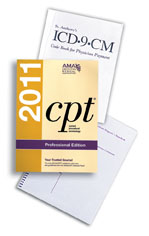Q. Does Medicare cover all items and services associated with cataract surgery?
A. No. Most items and services associated with routine cataract surgery are covered under Medicare’s national policy. There are some things that are not covered and, if provided, the beneficiary is financially responsible for payment.
Q. Which items and services associated with cataract surgery are covered by Medicare?
 |
“Accordingly, where the only diagnosis is cataract(s), Medicare does not routinely cover testing other than one comprehensive eye examination (or a combination of a brief/intermediate examination not to exceed the charge of a comprehensive examination) and an A-scan or, if medically justified, a B-scan. Claims for additional tests are denied as not reasonable and necessary unless there is an additional diagnosis and the medical need for the additional tests is fully documented.”
Q. If we perform both an A-scan (76519) and an IOLMaster (92136), may we bill one of the tests to the patient as a noncovered test?
A. No. One of the tests is redundant and NCCI edits preclude claims for both tests. If the cataract surgery is a covered procedure, the citation listed above clearly indicates that biometry is covered, therefore, the patient cannot be asked to pay for a second biometry.
Q. Does Medicare cover anything else associated with cataract surgery?
A. Yes. Under Medicare law (Social Security Act, 1861(s)(8)), beneficiaries are covered for post-cataract eyeglasses following cataract surgery with implantation of an IOL. However, Medicare does not pay for the refraction to prescribe those eyeglasses.
Q. If diagnostic tests are performed in the postoperative period after cataract surgery, are they covered by Medicare?
A. Usually. The Medicare Claims Processing Manual (MCPM), Chapter 12, §40.1B, describes services excluded from Medicare’s global surgery package. For example, medically necessary “diagnostic tests” are outside of the package and paid separately. However, a final refraction following cataract surgery is not covered by virtue of the Medicare law, and not bundled with the global surgery package. It may be billed separately to the beneficiary.
Q. Are Medicare beneficiaries required to sign an ABN before receiving any non-covered items or services?
A. Maybe. An Advance Beneficiary Notice of Noncoverage (ABN) is only required if something might be covered. However, items and services that are never covered (i.e., refraction) by virtue of exclusions in the Medicare law do not require an ABN.
Nevertheless, to avoid “buyer’s remorse,” it’s a good idea to obtain proof that the beneficiary accepts financial responsibility for noncovered items and services. Either an ABN or a Notice of Exclusion from Medicare Benefits (NEMB) may be used for this purpose. Simultaneously, get payment from the patient prior to rendering care.
Q. Are there diagnostic tests that may be offered to cataract patients that would be considered noncovered by Medicare?
A. Yes. Screening for potential disease, such as macular degeneration or epiretinal membrane, using scanning computerized ophthalmic diagnostic imaging of the posterior segment (SCODI-P), is not covered because prophylactic testing is not a Medicare benefit unless specifically authorized by Congress.
In contrast, testing patients with a history of AMD is a covered service. Likewise, specular microscopy is a covered service under the Medicare national policy where clinically significant corneal pathology is present, as is B-scan for dense cataract.
Q. Are there any noncovered charges for evaluation and treatment of astigmatism at the time of cataract surgery?
A. Yes. In addition to refraction, corneal topography is very helpful for assessing corneal astigmatism suggested by lensometry or detected by keratometry prior to cataract surgery. Corneal topography is considered a covered test for indications such as post-penetrating keratoplasty, keratoconus, corneal dystrophy or keratopathy, but not for preoperative cataracts.
To achieve excellent unaided vision following cataract surgery, astigmatism must be minimized. The surgical correction of pre-existing astigmatism is another noncovered service that should be considered for patients with more than 0.75 D of cylinder.
Q. Are there any noncovered charges associated with patients considering pseudophakic monovision?
A. Yes. After a detailed discussion and assessment of the patient’s desire for spectacle independence and his visual needs for his activities of daily living, the surgeon performs a battery of preoperative tests to measure ametropias, ocular dominance, stereopsis and interocular defocus threshold. All of the tests are refractive in nature and the unit of measurement is diopters. Refractions, as well as related refractive tests, are not covered by Medicare and most other third-party payers (Medicare Claims Processing Manual, Chapter 21, §50.26.1).
Q. Does the patient get to decide whether to have these noncovered tests?
A. Yes; even though some surgeons find these tests and associated results indispensable, the patient gets to choose whether to submit to them. Patients need to be fully informed about their care and any financial obligations. The patient cannot be forced to have them. If the patient places too many limitations or unreasonable expectations on the surgeon, the ophthalmologist has the option to refuse to provide care.
Q. Are there any noncovered services associated with conventional IOLs within an ambulatory surgery center?
A. Sometimes. The facility fee associated with performing limbal or corneal relaxing incisions for the surgical correction of corneal astigmatism is noncovered.
Q. Does the patient benefit from having these noncovered tests and services?
A. Most cataract surgeons would unanimously indicate yes. Cataract surgery has evolved tremendously since the first IOL was implanted in 1949. Modern techniques combine noncovered refractive services with cataract extraction. Surgeons achieve better patient outcomes, with reduced reliance on post-cataract eyeglasses due to reduced residual refractive errors.
Ms. McCune is vice president of the Corcoran Consulting Group. Contact her at
DMcCune@corcoranccg.com.



